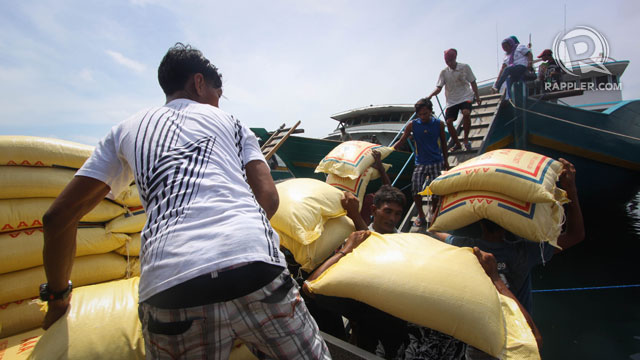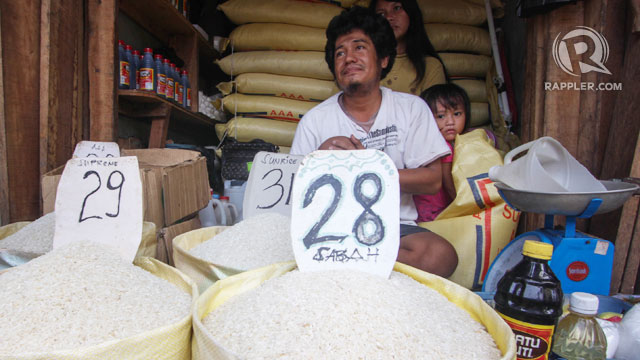SUMMARY
This is AI generated summarization, which may have errors. For context, always refer to the full article.
 TAWI-TAWI, Philippines – A special inter-region and inter-agency committee was formed in Mindanao to address the impact of the Sabah standoff on communities and the local economy.
TAWI-TAWI, Philippines – A special inter-region and inter-agency committee was formed in Mindanao to address the impact of the Sabah standoff on communities and the local economy.
Mujiv Hataman, acting governor of the Autonomous Region in Muslim Mindanao (ARMM), said the government is bracing for the worst — a massive deportation of Filipinos from Sabah, site of a bloody standoff between armed followers of the Sultan of Sulu and Malaysian security forces.
“We are expecting mass deportation. But I hope our expectations are wrong,” Hataman said.
The Office of Civil Defense (OCD) said that close to 300 Filipinos fled Sabah Tuesday, March 5, when Malaysian security forces launched a second attack — an air and bombing raid — on armed Filipinos holed up in Lahad Datu.
Ramon Santos, director of the OCD in ARMM, said that about 280 Filipinos arrived in the Zamboanga Peninsula and Tawi-Tawi Tuesday night, returning to their respective homes.
Santos said these Filipinos were not directly involved in the fighting and did not necessarily come from Lahad Datu.
“They’re just afraid to be caught in the crossfire, so they brought home their families,” Santos said in Filipino.
He said they tried to avoid a naval blockade set up by both countries by passing through other channels toward Zamboanga Peninsula and parts of Tawi-Tawi.
Humanitarian crisis?
Filipinos, especially the Tausugs or Orang Suluk in Bahasa Melayu, have told reporters they are anxious about their safety in Sabah.
One relative of a Filipino based in Sabah said: “Nalapay katan in manga Tausug di garagara sin manga penceroboh ini. Basta aun Tausug amun naguusal passport saggaun, di na sambungan in passport Imm13, ” Fatima said in Tausug. (All the Tausug here have been affected here because of the Sulu army’s intrusion. All who are using the Imm13 passport are being apprehended and are not being given extension.)
The Imm13 is a temporary pass given to Filipino refugees in the 1980s.
Laisa Alamia, chairperson of the ARMM Regional Human Rights Commission, fears a looming humanitarian crisis. “We have heard reports of segregation,” Alamia said. (Read: Pinoys in Sabah: Afraid, segregated)
The government has started monitoring possible human rights violations in the area, Alamia said.
Hataman said the crisis unit will include ARMM, Region 9 (Western Mindanao), various government agencies, the Armed Forces of the Philippines and the Philippine National Police.
There are an estimated 800,000 Filipinos in Malaysia, most of whom live in Sabah.
Hataman urged Malaysian authorities not to include civilians in its security campaign.
Each agency is tasked to handle specific concerns, Hataman said.
The Department of Health and the Department of Social Welfare and Development were immediately tasked to take care of the immediate needs of the evacuees and deportees.

The Technical Education and Skills Development Authority was tasked to capacitate those who are deported, Hataman said.
For rehabilitation and self-reliance programs, the Department of Agriculture and the Bureau of Fisheries and Aquatic Resources were tasked to assist the residents.
The crisis management committee will have stations in Bongao, Zamboanga, Basilan and Sulu where displaced persons are expected to land.
Hataman also said that the current conflict must be resolved beyond the issue of sovereignty. “We should resolve this peacefully in the context of the Islamic faith,” he told Rappler. – Rappler.com
Add a comment
How does this make you feel?
There are no comments yet. Add your comment to start the conversation.